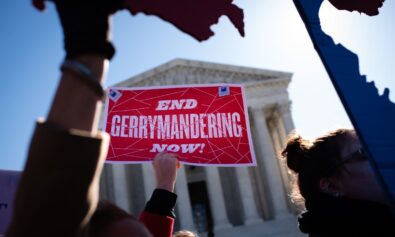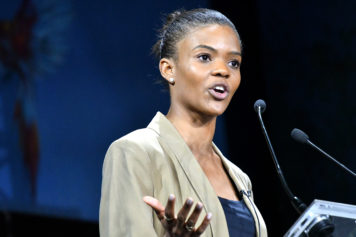
U.S. District Court Judge Thomas D. Schroeder ruled that the groups challenging North Carolina’s new voting rules failed to show they would suffer “irreparable harm” under the rules, so he denied their motion seeking to hold the November vote under old rules.
As described by the Associated Press, North Carolina’s laws are considered among the most restrictive in the nation. The law requires voters to present a government-issued photo ID, ends same-day registration, cuts the period for early voting by a week, and ends a popular high school civics program that encouraged students to register to vote in advance of their 18th birthdays.
As is the case in nearly every state that has passed restrictions, the Republican lawmakers who are behind it—including N.C. Gov. Pat McCrory—claim they are trying to stop voter fraud with the legislation passed last year. But there have been just a handful of confirmed cases in North Carolina in the last several years, according to the AP.
“Today’s ruling is just more evidence that this law is constitutional,” said Bob Stephens, a lawyer for the governor, who signed the law and is a defendant.
Rev. William Barber, president of the North Carolina NAACP, issued a statement criticizing the judge’s ruling.
“The court appears to have lost touch with the fears and rumors that pervade poor communities, and it ignores the long history of voter suppression tricks that take advantage of these fears and rumors,” Barber said in a release.
Schroeder, a George W. Bush appointee, wrote, “In the absence of the clear showing for preliminary relief required by the law, it is inappropriate for a federal court to enjoin a state law passed by duly elected representatives.”
His decision came after a weeklong hearing in July, during which a coalition of groups, including the League of Women Voters and the state NAACP, asked Schroeder to stop implementation of the new voting rules until they could hold a trial to determine whether the changes violate the U.S. Constitution or the Voting Rights Act of 1965.
While Schroeder decided to let the new rules stay in place for November, he did deny a motion from the state seeking to have the case dismissed. That means the matter will go to trial next year.
The groups opposing the voting laws claim they are designed to suppress turnout at the polls among minorities, the elderly and college students — who are clearly more likely to favor Democrats. The groups contented themselves with the fact that the judge didn’t throw out the case.
“The judge could have completely tossed this case if he felt the state’s argument had any weight,” said Allison Riggs, an attorney representing the League of Women Voters of North Carolina.
The law bars college students form using college IDs, though that portion won’t kick in until the next presidential election in 2016, after a trial would have taken place. Republicans who drafted the law are familiar with studies showing voters of color and low-income voters are more likely to lack a driver’s license and have access to secure housing, which means they have more frequent changes in addresses. Under the new law, voters who show up at the wrong precinct will no longer be allowed to cast a provisional ballot.
While 34 states have passed laws requiring an ID to vote, the response from the judiciary has varied—Wisconsin and Pennsylvania’s laws were struck down earlier this year by judges who said they could be a burden to voters.
But in some cases the new restrictions have backfired on Republicans, spurring African-Americans to come out in greater numbers as a form of protest. Many observers believe that’s exactly what happened in the 2012 election, when President Obama won a second term.
State Rep. David Lewis, R-Harnett, who shepherded the voting law through the House last summer, said it “feels good to have at least won this small fight.”
“I’m very pleased that the judge has not found a reason to impair the common sense election law that we passed that we’ve said all along gives everyone a full opportunity to participate in the election process, while at the same time improving the real and the perceived integrity of the election system,” Lewis said.


